|
The front room of Hla Hla Htwe’s home in Pyapon, Ayeyarwady Region, is a hive of activity. Family members are busy cutting fabric, sewing, washing, and ironing on a makeshift production line. They are making cloth face masks to help prevent the transmission of COVID-19. “On a good day, we can produce about 100 masks,” Hla Hla Htwe says. She and her family are part of a Community Partners International (CPI) initiative to help vulnerable families and communities who have lost work due to COVID-19 to generate income through mask making.
"I don’t know what I would do without this opportunity. I was afraid that no one would help me in these hard times."
In late March 2019, when the first confirmed COVID-19 cases appeared in Myanmar, Hla Hla Htwe was working in Yangon. As lockdown measures were introduced, she lost her job and returned home to Pyapon.
“I had run out of ideas for my family's income. I was so worried I couldn’t sleep. We were facing financial hardship and I wondered how we would survive. I thought about setting up a small grocery shop but I was short on capital and thought it would be too risky. So, I contacted Community Partners International and asked if they could help.” CPI’s mask-making initiative was the brainchild of Nay Zar Win, a Program Manager at CPI. “Back in early April, when COVID-19 began to affect Myanmar, I started to make face masks for family and friends. I tried three designs that I sourced online to find one that worked well.”
“At the same time, I was hearing many stories of hardship from families in the communities where CPI works. People were starting to lose jobs and income due to the COVID-19 lockdown. I began helping out a few families - showing them how to make masks that they could sell, and buying them raw materials to help them get started.”
Ma Nay Zar also spoke to her colleagues at CPI about her activities and they agreed that this was a significant opportunity to support vulnerable families to generate income while also helping to meet the rapidly rising demand for face masks. By this time, CPI was receiving requests from several sources, including the Kayin State Health Department, to supply thousands of cloth face masks for quarantine centers, public health campaigns, and other needs. Together, CPI’s team assessed face mask designs and selected two that met Myanmar’s Ministry of Health and Sports guidelines. Then, Ma Nay Zar and the team swung into action. They expanded the production hub in South Dagon to 12 households and provided the raw materials needed. They also reached out to a community organization, Baythitsadarna, in Mawlamyinegyun, Ayeyarwady Region, in the southwest of Myanmar. CPI and Baythitsadarna have cooperated for several years on health and livelihood projects that support vulnerable families through a network of village-based women’s unions. With 10 sewing machines and some funds in place to purchase raw materials, the women’s union members were ready to start.
With 30 households in South Dagon and the Ayeyarwady Region now involved, production launched in earnest in late April. Within a few days, this network was producing 1,000 masks each day. Each household takes on different roles depending on the equipment, skills, and time available. Those without sewing machines focus on fabric cutting, ironing, and packing. Other households are able to set up a complete production line. CPI supplies raw materials where needed and pays each family for their contribution to the production of each mask. The masks are made from 100% cotton, provide good coverage of the mouth and nose, and are durable and washable.
Several members of Hla Hla Htwe’s family are helping her to produce the masks. “My family has become a complete production line. I called my niece to assist with sewing to finish mask orders on time. My sons assist me with the packing process.”
On May 3, CPI completed and shipped the first consignment of 6,000 face masks to the Kayin State Health Department. These will be used in quarantine centers in Kayin State. This was soon followed by a second consignment of 10,000 masks to support an upcoming COVID-19 public health campaign to encourage people to wear face masks to reduce the transmission of the virus. The cost of these two consignments was covered by the Access to Health Fund. The network is now busy working on the third consignment of 10,000 masks further to a request from the Kayin State Ministry for Social Affairs.
Hla Hla Htwe’s family has already produced 1,400 masks. The work is a lifeline for her family. “I don’t know what I would do without this opportunity. I was afraid that no one would help me in these hard times. By producing these masks, we can make at least 12,000 Myanmar Kyat (c. $8.5) profit per day. I am happy that we can help ourselves and help prevent COVID-19."
CPI’s team is reaching out through partners to communities across Myanmar to find more households interested to join this initiative. The team is also busy seeking new opportunities to supply masks and open up new markets for this growing network of home producers.
Community Partners International’s face mask initiative is supported by private donors and the Access to Health Fund.
Donate to support CPI's COVID-19 Emergency Response in Myanmar and Bangladesh:
Donate Now
Comments are closed.
|
AuthorCPI Admin Archives
July 2024
Categories
All
|
|
|
COMMUNITY PARTNERS INTERNATIONAL
580 California St Fl 16, Ste 1658, San Francisco, CA 94104-1068, USA [email protected] +1 510 225 9676 We are a registered nonprofit 501(c)(3) Public Charity. TAX ID 94-3375666 |
©
Community Partners International

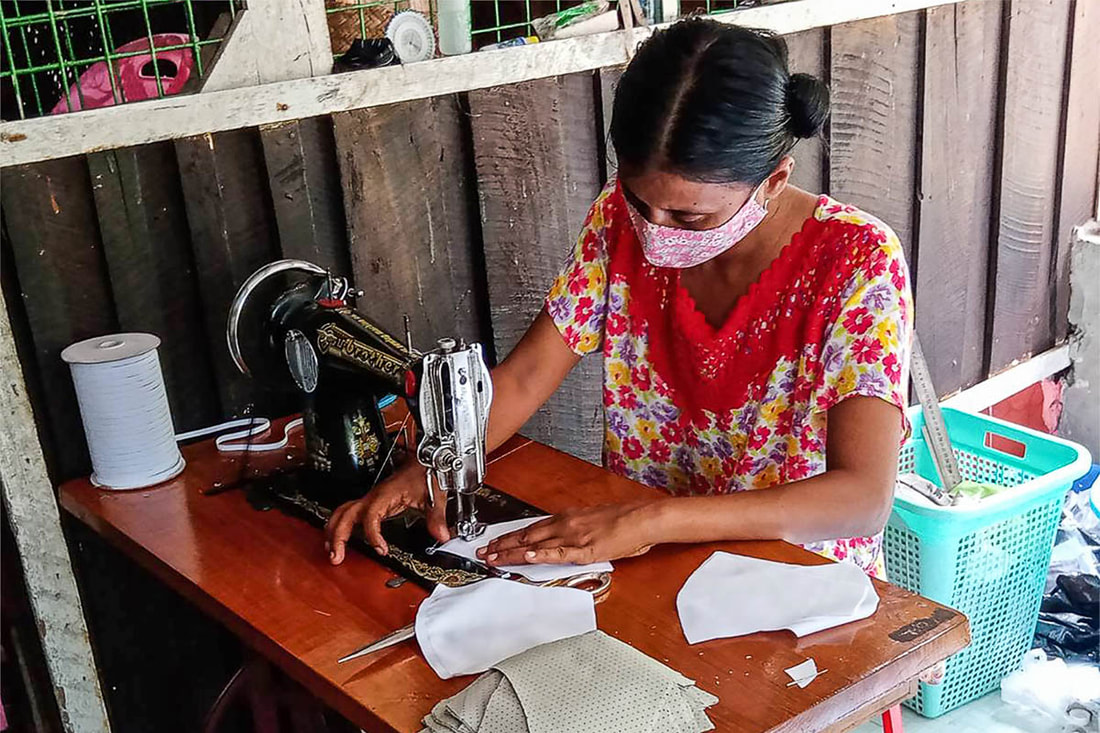
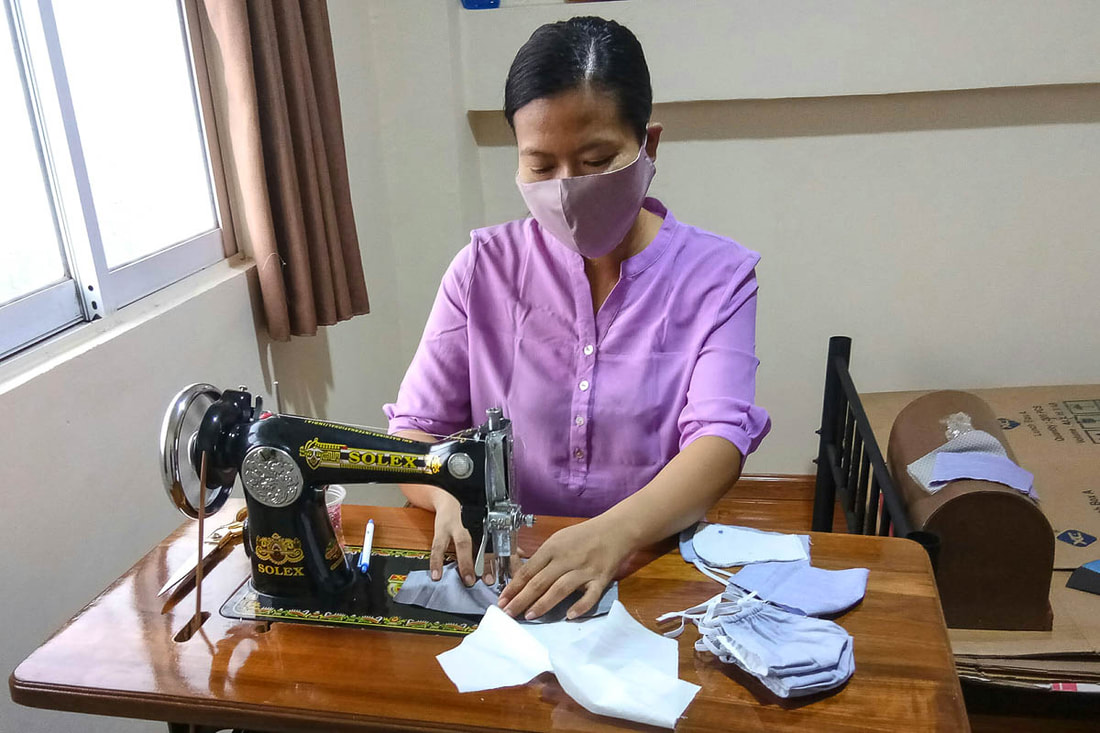
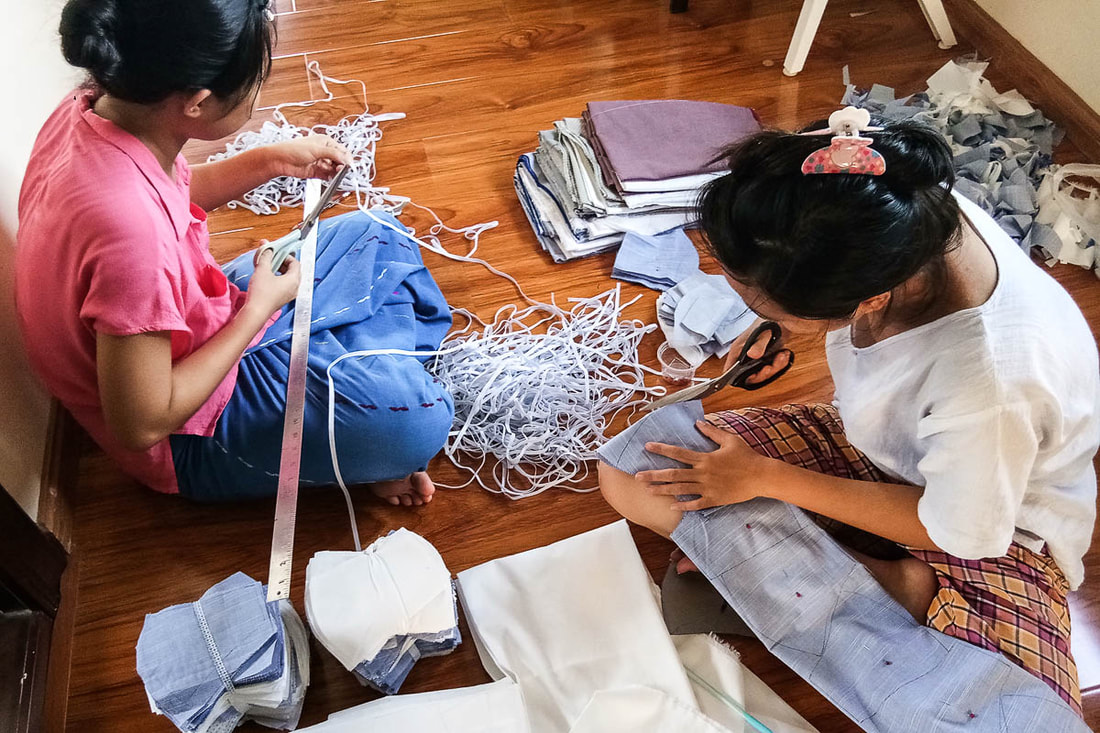
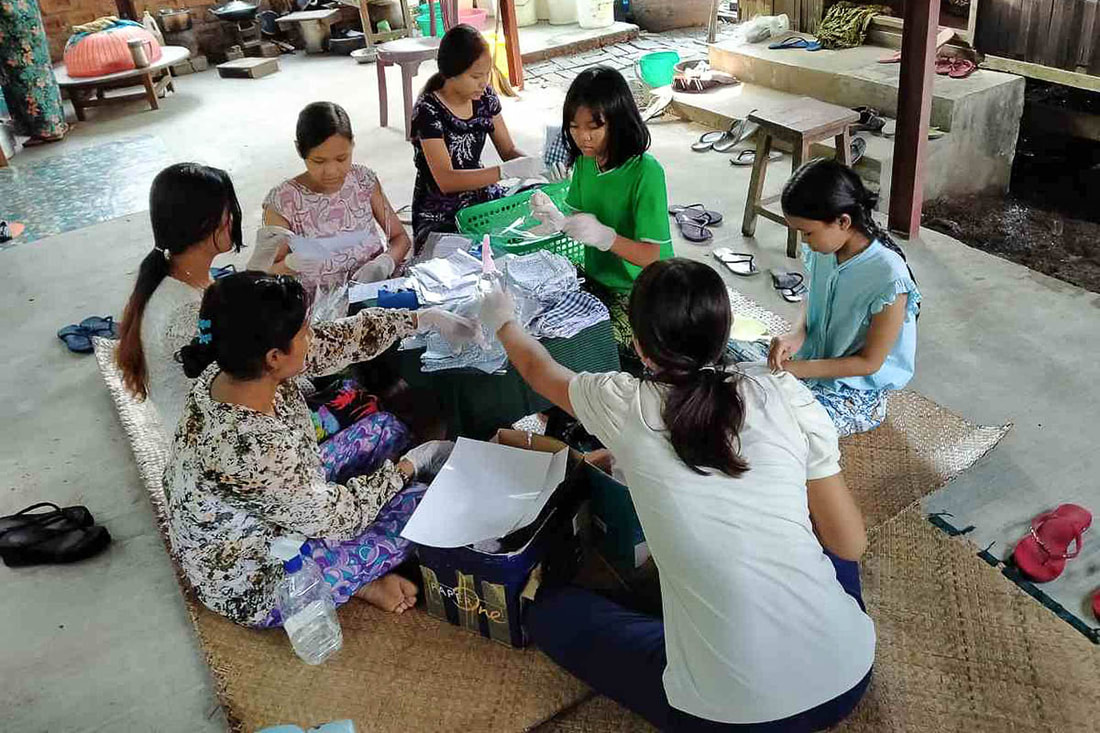
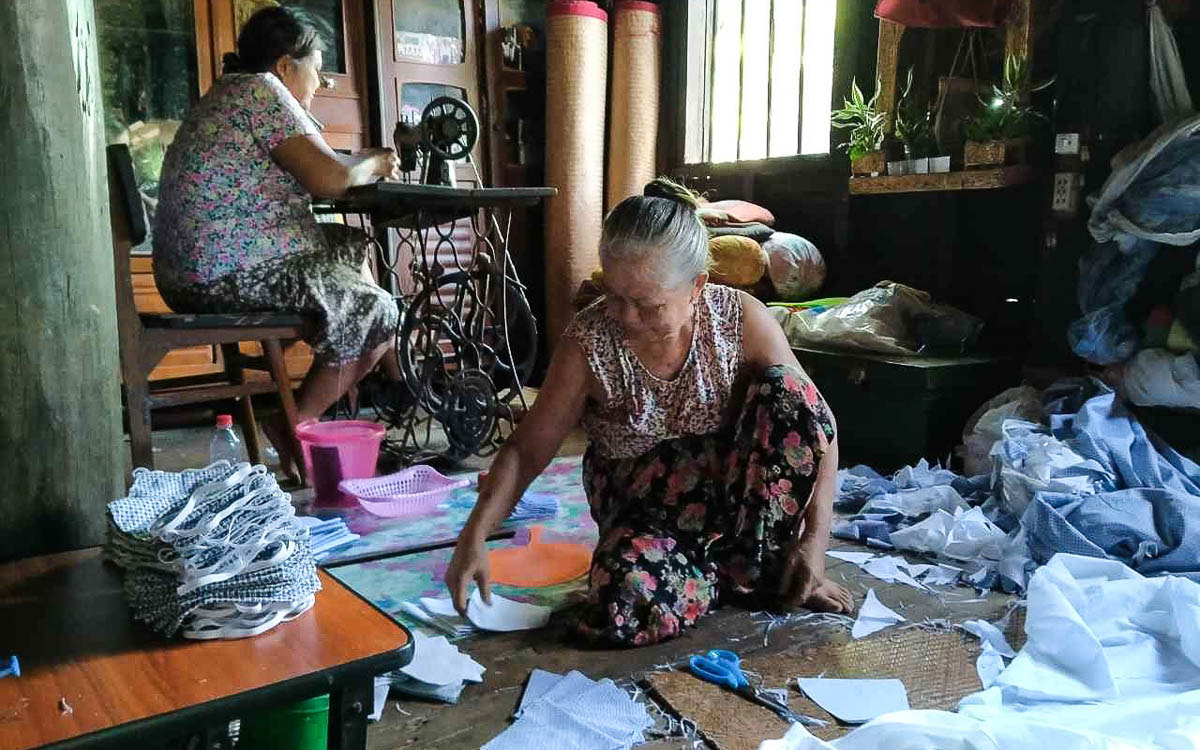
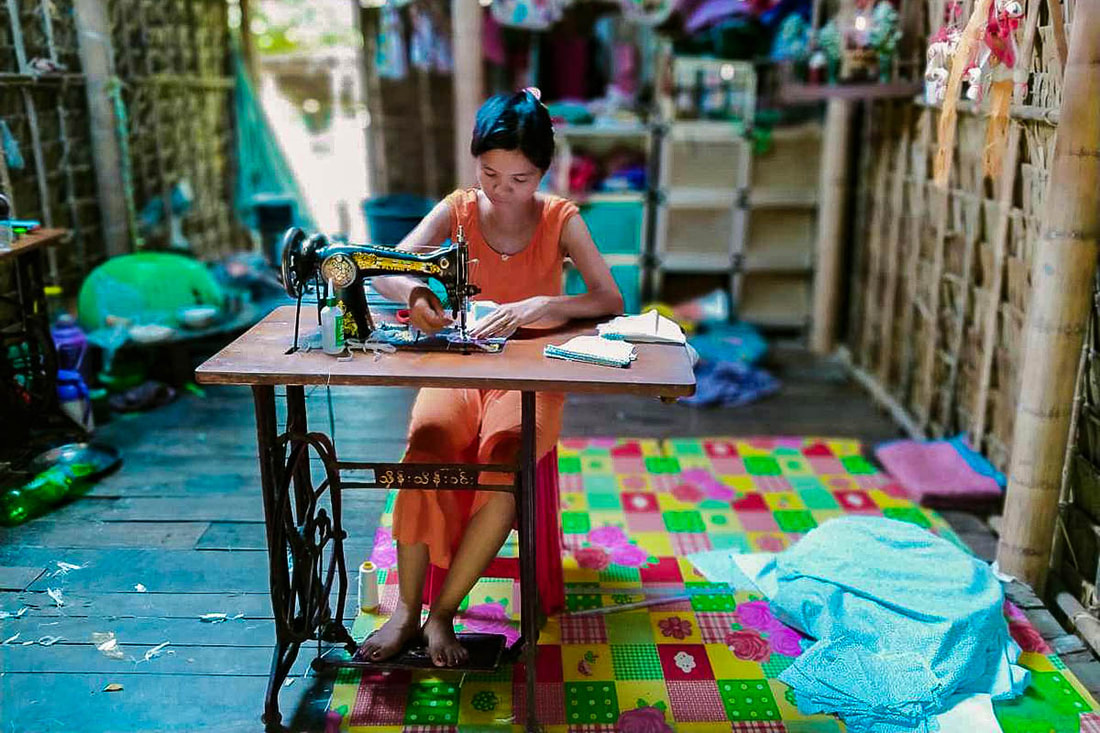
 RSS Feed
RSS Feed
